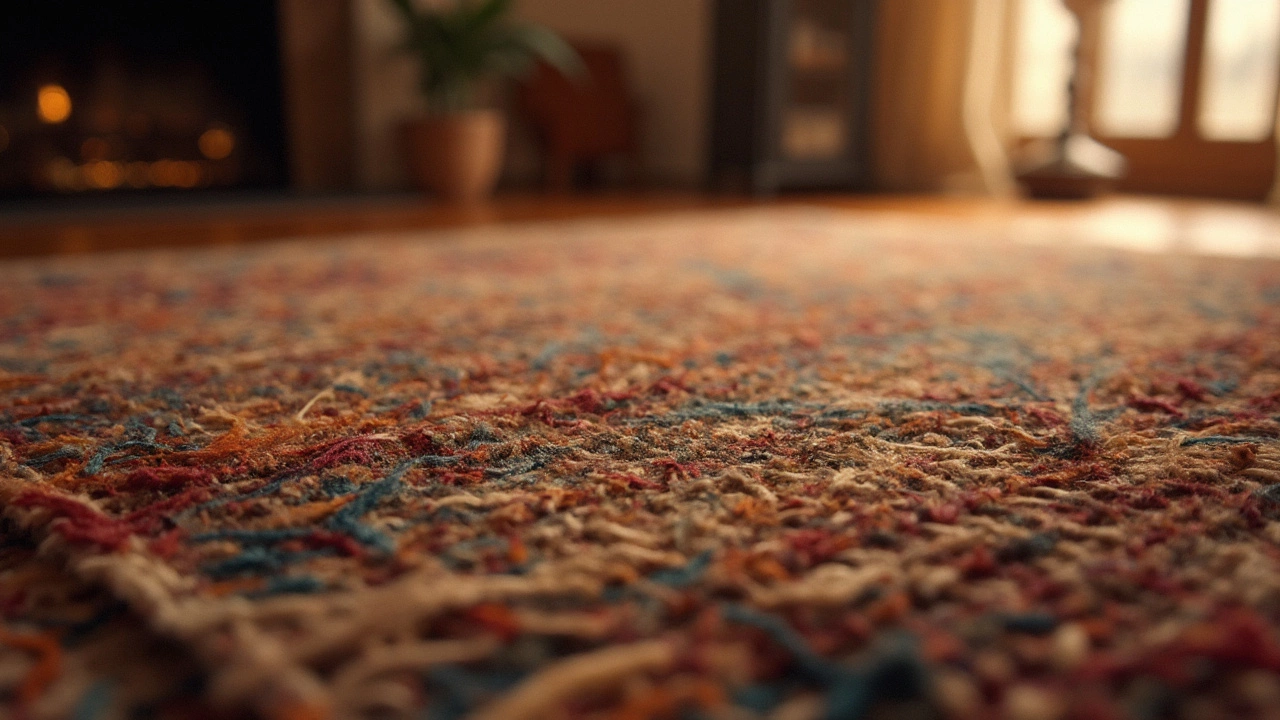Rugs add color and comfort, but they also collect dust, dirt, and spills. A little routine care goes a long way, saving you money and keeping your floor art looking new. Below are straightforward habits you can start today, no special tools required.
First thing: vacuum regularly. Use a suction‑only setting or a brush roll on low for delicate fabrics. Run the vacuum both ways to lift embedded grit. In high‑traffic zones, aim for once a week; in low‑traffic rooms, twice a month is enough.
Rotate your rug every few months. This spreads wear evenly and prevents one side from flattening under furniture. Simply flip it 180 degrees and shift it a few inches. It only takes a minute and makes a noticeable difference over time.
Place a rug pad underneath. A good pad stops slipping, reduces strain on rug fibers, and adds cushioning. Choose a pad that matches your rug size and material—felt works well for wool, rubber for synthetic fibers.
Spills happen. Act fast: blot—don’t rub—using a clean, dry cloth. Press gently to soak up liquid, then use a mild detergent mixed with water (a teaspoon of dish soap per cup of water). Test the solution on a hidden corner first; if the color stays unchanged, apply with a soft cloth and dab the stain.
For stubborn stains like wine or coffee, sprinkle a little baking soda on the wet spot, let it sit for 10‑15 minutes, then vacuum. Baking soda absorbs moisture and lifts residues without harming fibers.
When your rug looks dull or smells musty, it’s time for a deeper clean. If the label says “machine‑wash safe,” use a gentle cycle with cold water and a mild detergent. For larger or delicate rugs, hire a professional cleaner with experience in your rug’s material.
After any cleaning, allow the rug to dry completely before putting it back. Hang it over a railing or lay it flat in a well‑ventilated room. Avoid direct sunlight on bright colors, as it can fade the dyes.
Follow these easy habits—regular vacuuming, rotating, quick spot treatment, and occasional deep cleaning—and your rugs will stay vibrant and plush for years. A little attention today means fewer costly replacements tomorrow.

Flip a rug over, and you'll discover more than just its backside. The back of a rug can reveal hidden details about its quality, craftsmanship, and value. From the tightness of the weave to the type of loom used, these clues can help you make informed decisions when buying or maintaining a rug. Understanding these aspects can also pinpoint the true origin and authenticity of the piece.
